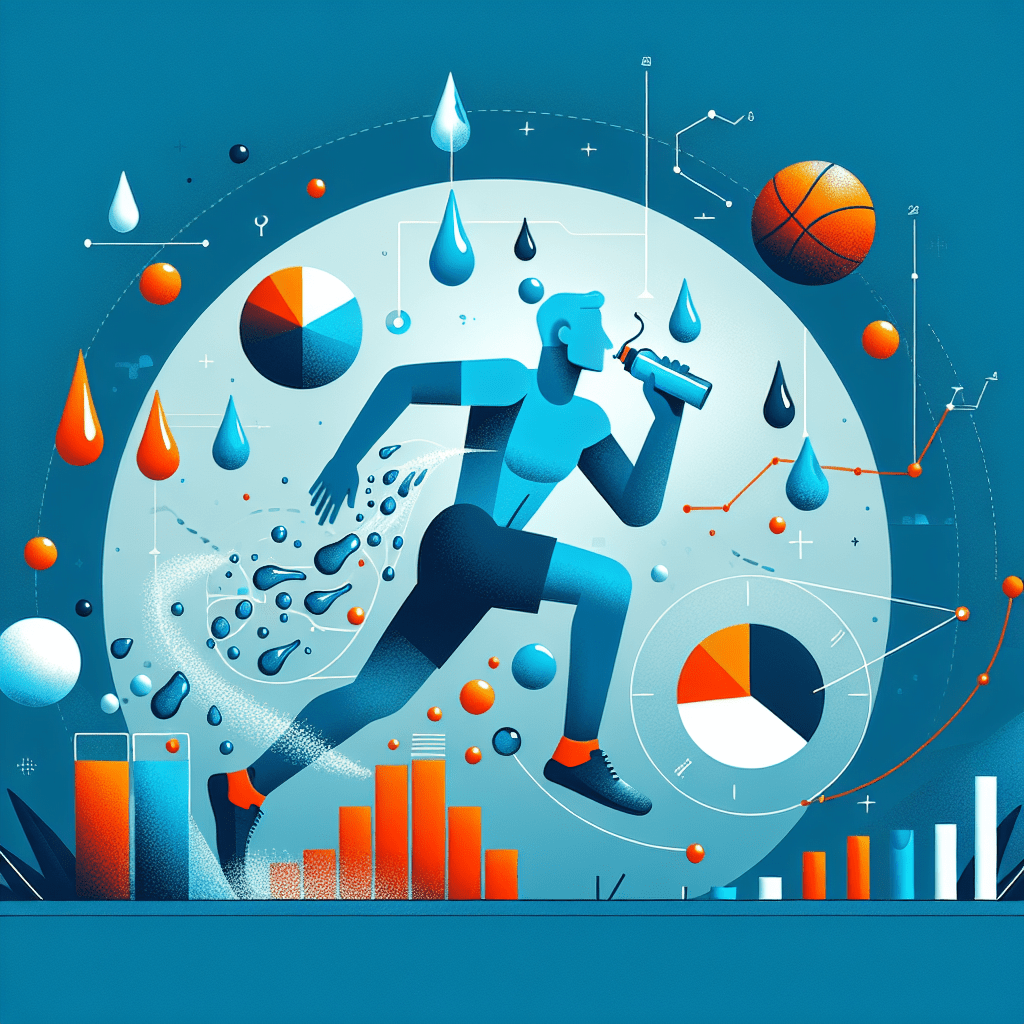The Link Between Hydration and Athletic Performance: A Data-Driven Look

The Importance of Hydration in Athletic Performance
Hydration is a crucial element in maintaining optimal health and performance, particularly for athletes. It plays a vital role in various physiological functions, including regulating body temperature, transporting nutrients, and maintaining overall body function. This article explores the link between hydration and athletic performance, backed by scientific data and expert opinions.
The Science Behind Hydration and Athletic Performance
Water makes up about 60% of the human body, and even a slight decrease in this proportion can significantly impact athletic performance. Dehydration can lead to fatigue, decreased coordination, and muscle cramping, all of which can negatively affect an athlete's performance.
According to a study published in the Journal of Athletic Training, dehydration of just 1-2% of body weight can impair cognitive abilities, physical performance, and mood. This underlines the importance of maintaining proper hydration levels during physical activities.
"Even mild dehydration can impair performance and mood."
How Dehydration Impacts Athletic Performance
Dehydration can have several detrimental effects on an athlete's performance. It can lead to decreased blood volume, which can reduce the supply of oxygen to the muscles, resulting in fatigue. Dehydration can also impair the body's ability to regulate temperature, leading to overheating and potentially heat stroke.
Moreover, dehydration can affect the brain's function, impairing concentration, decision-making abilities, and coordination. These effects can significantly impact an athlete's performance, particularly in sports that require precision and quick decision-making.
"Dehydration affects the brain's function, impairing concentration and coordination."
Optimal Hydration for Athletic Performance
For optimal performance, athletes should not only focus on staying hydrated during their activities but also before and after. Drinking fluids throughout the day, not just during exercise, is crucial for maintaining proper hydration levels.
According to the American College of Sports Medicine, athletes should drink at least 16-20 ounces of fluid 1-2 hours before an exercise session, and 6-12 ounces of fluid every 10-20 minutes during exercise. Post-exercise, athletes should consume enough fluids to replace any weight lost during the session.
"Proper hydration involves drinking fluids before, during, and after exercise."
Hydration and Heart Health
Proper hydration is not just crucial for athletic performance but also for heart health. Dehydration can increase heart rate and decrease blood volume, putting more strain on the heart. Staying hydrated helps maintain optimal heart function and reduces the risk of cardiovascular diseases.
As the American Heart Association notes, "Keeping the body hydrated helps the heart more easily pump blood through the blood vessels to the muscles. And, it helps the muscles work efficiently."
"Keeping the body hydrated helps the heart more easily pump blood."
Conclusion
In conclusion, hydration plays a crucial role in athletic performance and overall health. Dehydration can lead to several detrimental effects, including impaired cognitive and physical performance and increased strain on the heart. Therefore, maintaining proper hydration levels before, during, and after exercise is essential for optimal performance and health.
"Hydration is not just about quenching thirst, it's about maintaining health and optimizing performance."
Summary
Hydration is vital for optimal athletic performance and overall health. Dehydration can impair cognitive and physical performance and put more strain on the heart. For optimal performance, athletes should maintain proper hydration levels before, during, and after exercise. Proper hydration also helps maintain optimal heart function and reduces the risk of cardiovascular diseases. As the saying goes, "Hydration is not just about quenching thirst, it's about maintaining health and optimizing performance."
- Tags: dehydration effects Health Hydration hydration and cardiovascular health. hydration and heart health hydration athletic performance hydration cognitive performance hydration physical performance hydration sports performance maintaining hydration levels optimal hydration water athletic performance



